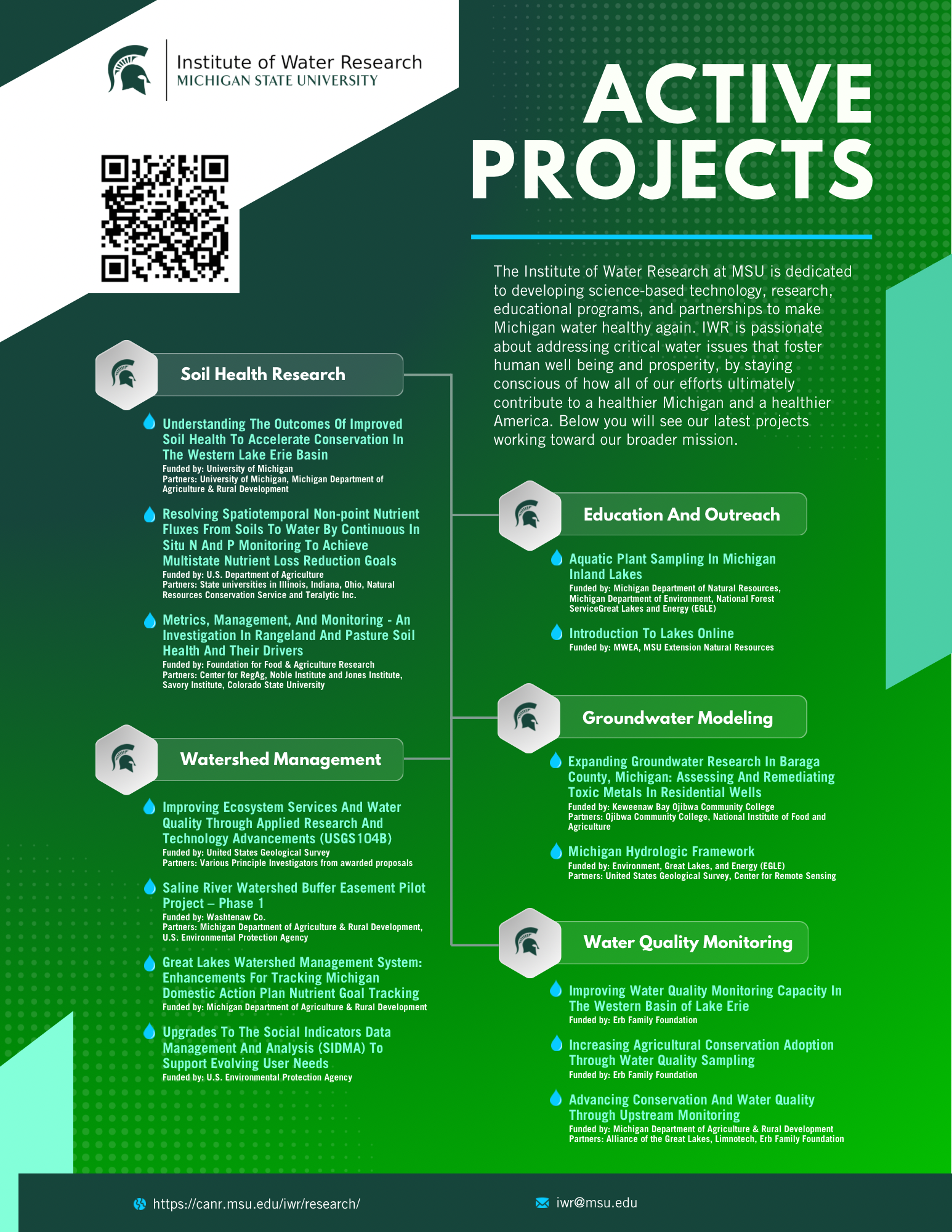About the Institute of Water Research
The IWR is one of 54 federally designated water institutes created under the Water Resources Research Act of 1964, and is supported by the U.S. Geological Survey (USGS). The IWR also receives ongoing support from MSU AgBioResearch and MSU Extension, and is a member of the National Institutes for Water Resources.
The Institute of Water Research at MSU is dedicated to developing science-based technology, research, educational programs, and partnerships to help understand and address critical water issues.
IN THE NEWS
AgBioResearch scientist develops tools to inform water conservation strategies
Erb Family Foundation Awards $750,000 for Development of Phosphorous Reduction Monitoring Strategy
MSU IWR is receiving this award as part the Erb Family Foundation's March '22 grant cycle. The grant will be used to develop a monitoring strategy in partnership with state and federal agencies to measure progress towards meeting the State of Michigan’s goal to reduce phosphorus in Lake Erie by 40%.
$19M Research Project Seeks to Understand How Management Impacts Soil Health, Farmer Well-being
The 5-year project is led by Noble Research Institute, Michigan State University, Colorado State University and the University of Wyoming. IWR will contribute to the research with expertise on water cycling indicators and modeling, as well as data scaffolding, algorithm development and producer feedback development.
Interactive online dashboard helps visualize community health risks in three lenses. The IWR has collaborated with the Bowling Green State University Great Lakes Center for Fresh Waters and Human Health, the University of Michigan, and MSU Extension on a Sea Grant project to develop a new online dashboard to help scientists, policy makers and the public understand and predict water quality and community health data as it relates to harmful algal blooms.





.png?language_id=1)
 Print
Print Email
Email